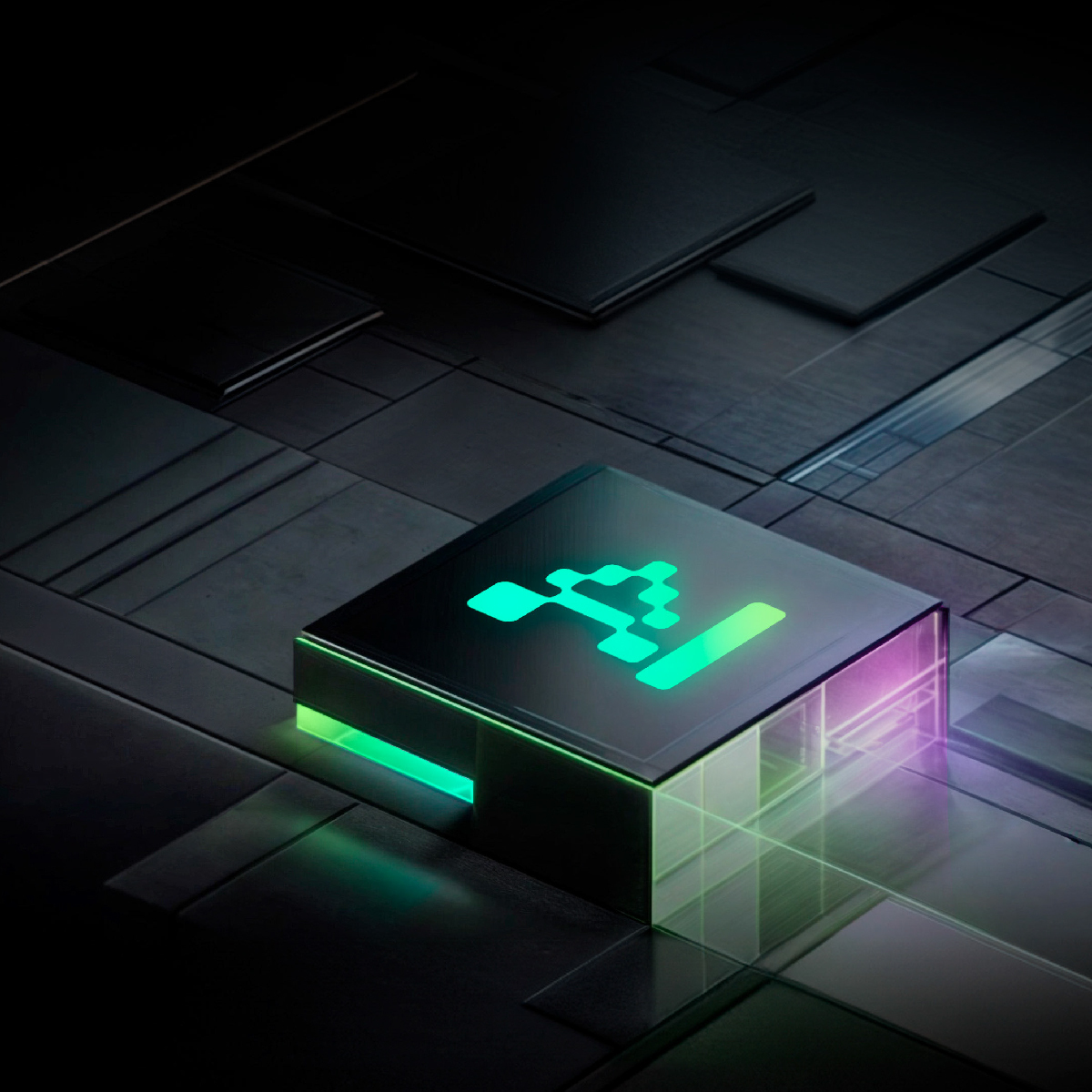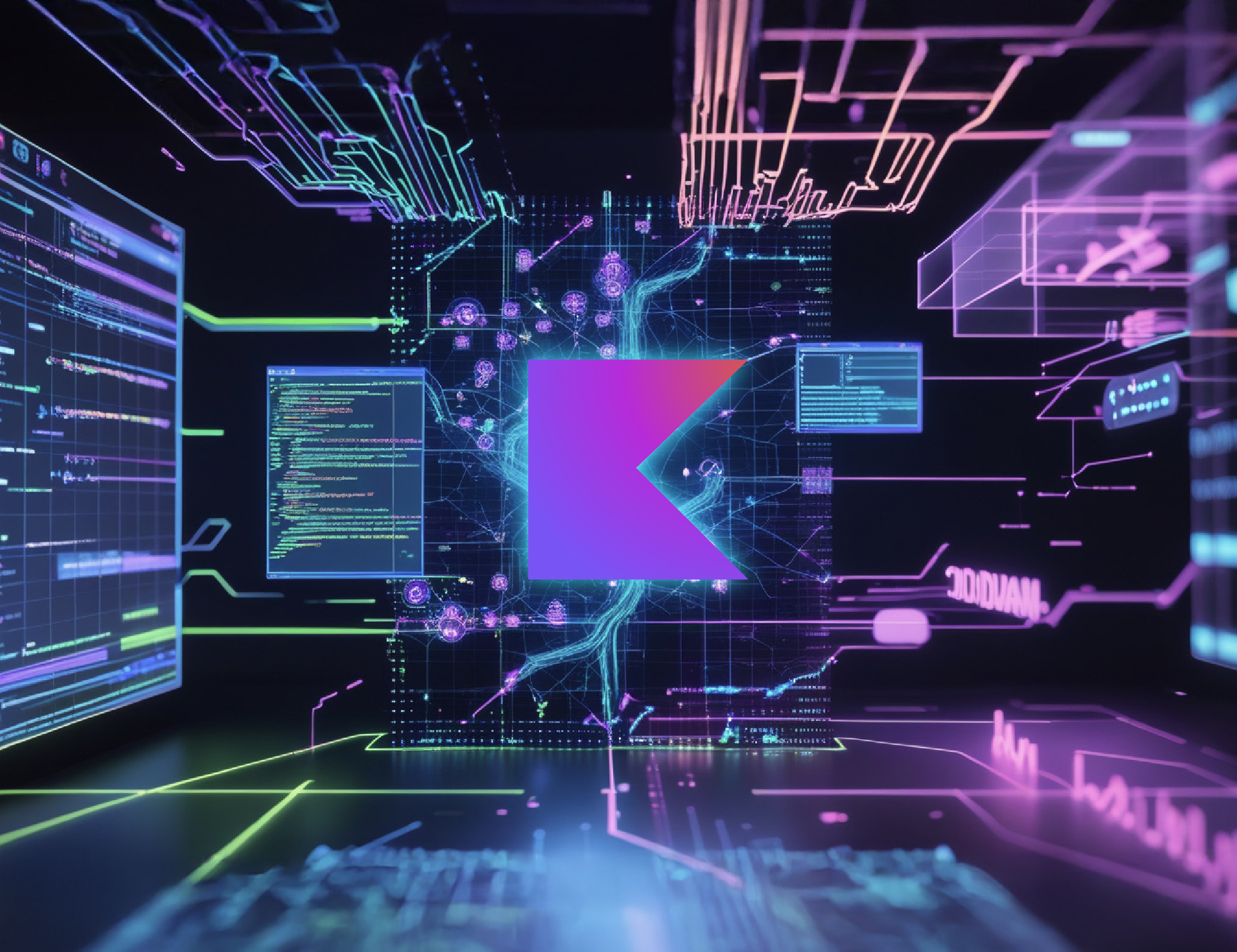Join our newsletter



The dynamic software development environment depends on AI as the main catalyst for innovation within high-level programming languages, including Kotlin. The growing importance of smart development tools becomes essential as Kotlin consolidates its position in Android development and server-side applications and multimodel development via Kotlin Multiplatform (KMP). Artificial intelligence development technology now includes advanced features that cover smart code refactoring and automated testing as well as program optimization. Senior Kotlin developers who understand and appreciate Kotlin features can increase their productivity while enhancing code quality through the integration of artificial intelligence technologies.
Five AI-powered tools that specifically enhance Kotlin projects are discussed in this article which consists of IntelliJ Code, Syntha AI, Qodana, Cloving AI, and Workik. This article offers an examination of these tools together with their major functions while discussing hazards and suggesting ways to keep AI usage smooth. The assessment includes vital elements about preventing AI from generating inefficiencies and understanding how to maintain a balance between automation while maintaining adequate maintainability standards and complying with ethical requirements. You will establish a better understanding of how AI supports your Kotlin development cycle from creation through distribution to ongoing maintenance throughout the article.
These are the key AI features available to Kotlin developers.
JetBrains built IntelliJ Code as an AI-powered extension that extends their IntelliJ IDEA platform, particularly for Kotlin development enhancement. IntelliJ Code analyzes Kotlin code running into millions of lines to suggest syntax refactorings and design patterns through data acquired from JetBrains' ecosystem.
Key Capabilities
IntelliJ Code performs contextual code completion that finishes syntax as well as recommends high-order functionalities with matching parallel processing models and optimal Kotlin extensions through understanding your current code section.
It uses Smart Refactoring to identify complex code patterns and then provide professionals with enhanced refactoring methods that optimize performance outcomes.
It also utilizes its AI engine to detect architectural improvements in Kotlin-based Clean Architecture and layered projects thus minimizing technical debt between large projects.
Kotlin-Specific Benefits
The tool automatically updates the Kotlin plugin through its integrated system. It also provides automatic recommendations on coroutine usage because they are useful for asynchronous or concurrent programming approaches.
Syntha AI develops code generation services based on Kotlin programming language and features learning automation technologies. Analyses of current codebases enable the system to create new modules, features, and classes that need only a small amount of human interaction. The knowledge engine behind Syntha AI collects development patterns and domain rules to speed up project development.
Key Capabilities
With domain models and business logic examples, Syntha AI creates Kotlin code that maintains the current codebase architectural standards while reaching necessary performance standards.
Syntha AI uses incremental learning to enhance its suggested code via ongoing evaluation of the latest committed source code that helps it adapt to your changing development standards.
The automated Project Scaffolding tool helps developers create new features by generating typical project structures and building scripts and grade configurations as boilerplate tests.
Kotlin-Specific Benefits
The code generator provides complete support for Kotlin’s typical coding conventions so that developers encounter a familiar code base that fits their stylistic preferences.
The tool includes built-in functionality to generate Kotlin Multiplatform libraries that benefit projects requiring multi-environment support.
Qodana represents the AI-powered static analysis platform of JetBrains which integrates directly with Kotlin projects. Through its combination of rules engine technology with ML-based algorithms, Qodana lets developers find performance and security weaknesses together with code maintainability concerns immediately after development starts.
Key Capabilities
Automatic code enhancement suggestions related to nullable values and unalterable objects as well as actions that affect data state and patterns for concurrency and ways to optimize memory usage.
Qodana uses its machine learning model to conduct security audits that detect unsafe library versions along with points where injections can occur and specific vulnerabilities present in Ktor and Spring Boot with Kotlin framework implementations.
It seamlessly fits within CI/CD pipelines because it automatically generates pipeline feedback about code submissions so development teams receive feedback before production deployment.
Kotlin-Specific Benefits
Cloving AI delivers AI-powered debugging tools together with testing features and commit generation solutions for the Kotlin platform. The main function of Cloving AI involves generating automatic tests to speed development through its bug-search algorithms while also producing written descriptions of source modifications.
Key Capabilities
Kotlin-Specific Benefits
Workik serves as an AI-empowered Kotlin application developer which allows programmers to build whole project structures rapidly. Through its front-end connections to microservices, Workik produces automated processes that save valuable development time for core business tasks.
Key Capabilities
Multi-Layer Application Generation: Generates server-side Kotlin microservices, database schema migrations, and front-end integration layers for a full-stack approach.
Workik supplies several template options that provide contemporary designs between domain-driven design code structures or layered architectural code structures consisting of defined domain, application, and infrastructure modules.
Creation of adjustable CI/CD pipelines that perform base checks between code style evaluation and test coverage monitoring as well as containerization script definition.
Kotlin-Specific Benefits
Kotlin Multiplatform libraries attach directly to the platform to speed up multi-platform development processes.
Users can specify Gradle configurations to create full Kotlin applications with reduced unnecessary code.
Smart code completion along with refactoring represent the fastest achievable benefits when developers employ AI in their Kotlin work. Code completion tools such as IntelliJ Code and Syntha AI help developers propose complex refactorings including transformations from cumbersome callback structures to simple coroutines as well as the creation of data classes and sealed hierarchies for clear coding.
Implementation Tips
Add IntelliJ Code into your IDE environment that uses the Kotlin programming language. Existing modules should be analyzed by the system to create personalized suggestions.
The configuration of Syntha AI should generate or refactor existing code while maintaining domain models consistent with your architecture.
The test case generation capabilities of Cloving AI apply to concurrent operations along with handling null references and testing boundary scenarios which develops vital tests for Kotlin programs. Programming debug tools can locate specific lines within sophisticated coroutines as well as hot execution paths in server nodes that process large amounts of information.
Implementation Tips
The real-time feedback system can be achieved by integrating Cloving AI testing tools with the JetBrains IntelliJ test runners.
The built-in log analysis of Cloving AI interprets system outputs to identify sources of memory leakages along with race condition issues.
Consistency together with maintainable code becomes essential for developing large enterprise projects. Qodana detects both security threats and code performance problems in addition to identifying anomalies. Adding Qodana into your DevOps framework enables your team to preserve superior code standards by providing AI-generated reviews for each pull request.
Implementation Tips
Your CI/CD pipeline needs Qodana installation where you can set custom analysis rules for Kotlin.
You should document the suggestions from Qodana while conducting regular evaluations of these suggestions for your entire team. The team should first address refactorings that deliver maximized long-term benefits.
The repetitive and time-consuming tasks performed by hand which include writing commit messages along with scaffolding new modules make excellent candidates for AI automation.
The combination of Cloving AI’s commit message automation with Workik’s total Kotlin application design assistance allows developers to maintain an uninterrupted focus on senior-level assignments.
Implementation Tips
To maintain auditable traceability during future examinations, use Cloving AI, code review rules, and standard commit messages.
The template system of Workik should be used to automate new microservice development during prototyping and proof-of-concept activities.
Integrating AI automated systems requires proper control of code quality standards.
After AI quickens the coding pace, developers must manually inspect automatic code production. Large auto-generated programming sections have the potential to introduce difficult elements into the design while deviating from accepted architectural recommendations.
The best practice involves establishing a required code review system to evaluate outputs created through automated processes. The process helps developers maintain project standards and prevents them from accepting AI-generated work unreviewed.
Sophisticated AI systems will produce substandard solutions for particular edge conditions. Guardrails should be set for mathematically precise solutions because they tend to cause performance issues especially when these solutions interact with complicated Kotlin concurrency patterns or domain-related logic.
Best Practice: Benchmark critical paths in your code. Performance profiling tools consisting of Java Flight Recorder or Kotlin’s built-in profiling supports should validate that AI-suggested code modifications uphold performance benchmarks.
Artificial Intelligence systems accidentally include programming elements from both proprietary applications and doubtful programming code bases. You must strictly adhere to licensing together with intellectual property regulations.
Each AI tool must be properly configured with privacy and code usage settings that block unidentified data sharing. The implementation of AI-code suggestions requires maintaining system logs to preserve auditable records about the origin of your program’s code.
AI tools that support Kotlin programming have advanced past their original limits of basic code completion capabilities. Advanced Kotlin development tools built by IntelliJ Code and Syntha AI along with Qodana, Cloving AI, and Workik provide experienced developers with effective enhancement tools for their workplace operations. By implementing AI tools sensibly through manual assessment of automation performance tracking and careful ethical boundary adherence the technology will optimize code production without reducing quality standards.
Our team unites modern technology innovations with measurable organizational results. Our core expertise matches with the Kotlin team's integration of sophisticated AI tools to enhance their business development practices during workflows.
We make our combined experience and dedicated teamwork and solution transformation capabilities available to you when you choose to work with our team. We're ready to enhance your business operations by combining advanced productivity improvements with code quality strengthening and future-proof project enhancement for Kotlin solutions.
Contact us now at sales@kenility.com to learn about how our abilities can advance your development to an innovative next stage.